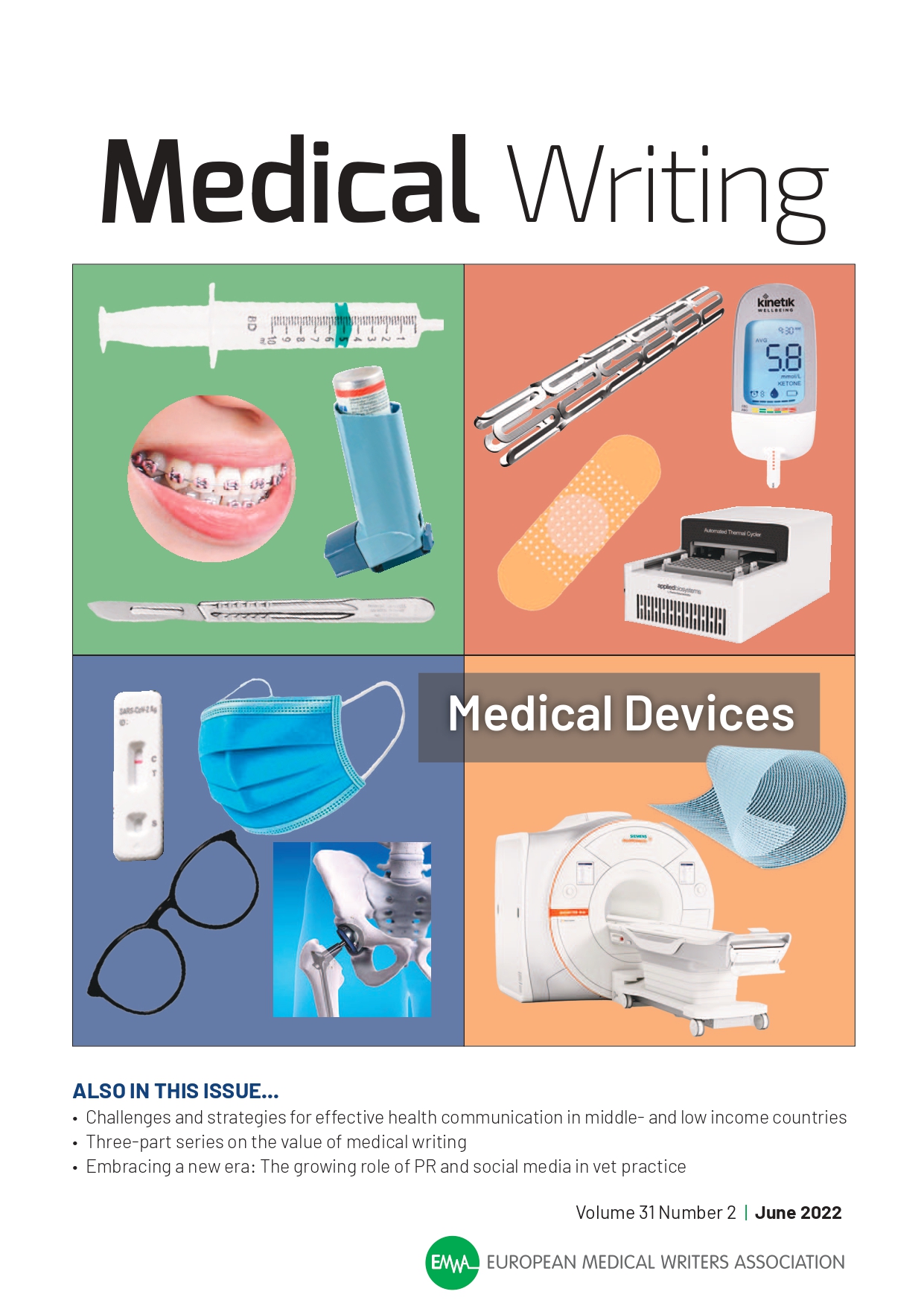
Volume 31, Issue 2 - Medical Devices
Optimizing the value of regulatory writers
Authors: Dylan Harris, Lisa Chamberlain James, Julia Forjanic Klapproth, Brian Bass
Abstract
An expanding need for clinical documentation and regulatory health authority interactions during drug development has drawn increased attention to the role of the regulatory medical writer. This role is frequently misunderstood and poorly recognized. The American Medical Writers Association (AMWA) formed a working group in 2020 dedicated to defining the value that regulatory medical writers contribute. The purpose of this article is to demonstrate the value that regulatory medical writers bring to the drug development and approval processes and to explore the ways in which efficiencies in regulatory writing can be increased. Current models for success provide guidance on training to help medical writers achieve their full potential, but obstacles and barriers to medical writing efficiency and document quality remain.
Surveys developed by the AMWA working group revealed that (1) regulators who review clinical documents believed that regulatory writers improve document quality and (2) writers are frequently recognized for leadership and collaboration. Maximizing medical writing value requires thoughtful leadership and investment in training that includes both technical knowledge and soft-skill proficiency.
 Download the full article
Download the full article
Search
Articles
Links
Editoral Board
Editor-in-Chief
Co-Editors
Managing Editor
Victoria White
Deputy Managing Editor
Alicia Brooks Waltman
Associate Editors
Section Editors
AI/Automation
Biotechnology
Digital Communication
EMWA News
Freelancing
Gained in Translation
Getting Your Foot in the Door
Good Writing Practice
Pablo Izquierdo / Alison McIntosh
In the Bookstores
Publications
Medical Communications/Writing for Patients
Medical Devices
My First Medical Writing
News from the EMA
Pharmacovigilance
Regulatory Matters
Regulatory Public Disclosure
Louisa Ludwig-Begall / Sarah Kabani
The Crofter: Sustainable Communications
Veterinary Writing
Editors Emeritus
Layout Designer
Chris Monk
 Visit the EMWA website
Visit the EMWA website